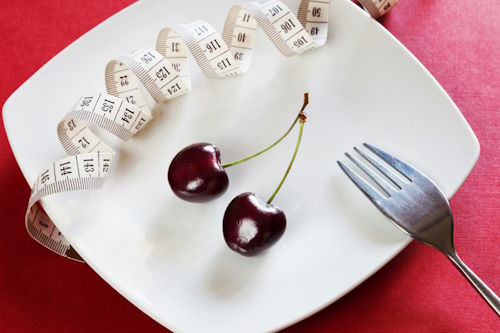If you’re like most people (at least 55% of Americans), you’d like to drop a few pounds. But how? With the sheer volume of (often contradictory) information, it can feel overwhelming to even begin to know where to start. Eat less. Cut carbs. Fast for hours. Work out harder…
Sadly, for many of us, these types of strategies, especially extreme calorie restriction and over-exercise, only lead to frustration, burnout, and possibly weight gain in the future due to the resulting loss of muscle and slowed metabolism.
But what if the real secret to losing fat while, importantly, maintaining muscle doesn’t involve extremes at all? According to a new study, those are facts! The real secret is simpler than you think: eat more protein and fiber.
BREAKING: 1 Cup of This Melts Belly and Arm Fat (Take Before Bed)
Ready to dive in and see why this approach is effective and how to put it into action for long-term success? Let’s go.
The Science Says…
According to this recent year-long study, participants who lost the most fat did so by increasing protein and fiber intake. This approach didn’t just help them lose weight. It helped them lose the right kind of weight: body fat. What’s more, they were able to preserve muscle mass, which is essential for a healthy metabolism, strength, and overall health.
Here’s why this strategy works:
Protein is a building block for muscles. It’s crucial for the repair and retention of lean mass as you lose weight. It also has a high thermic effect. That is, your body burns more calories to digest it than it does other macronutrients (i.e., carbohydrates and fat). It’s also satiating—it helps you feel fuller for longer.
This makes protein your best ally when it comes to losing fat and retaining muscle. By eating enough high-quality protein, you’re protecting your muscles, keeping your metabolism humming along, and supporting recovery from exercise.
Fiber also helps you stay fuller for longer. In addition, it stabilizes blood sugar levels and improves gut health. All these effects can help curb overeating, decrease unhealthy cravings, improve digestive health, and ultimately support fat loss.
What sets the eat more protein and fiber approach apart from many other diet strategies is it focuses on nourishing the body rather than depriving it. You focus on all the good foods you can eat rather than those you can’t.
Plus, the combination of eating more protein and fiber not only helps manage hunger levels but also contributes to long-term health. Something most fad diets don’t and can’t do. Thus, this powerful duo not only supports your weight-loss goals; it also prioritizes health and sustainability over the long haul.
The Skinny Fat Trap
Unfortunately, a lot of folks still rely solely on the number on the scale to determine their weight-loss success. This can be a big mistake. In reality, preserving muscle mass is the key to a healthy body composition, which leads to long-term success.
Losing fat while maintaining muscle isn’t just about looking lean and toned. It’s about thriving as you age. When people lose weight too quickly or if they’re not eating enough protein, they risk becoming “skinny fat.” In other words, while they may have lost enough weight to become smaller, because they lost more muscle than fat, they may be left with a higher proportion of body fat. This can not only negatively affect appearance. It can reduce strength, mobility, and overall health.
Remember, maintaining muscle is critical for healthy aging. Strong muscles are needed to support bone health, balance, and even your independence. They’re also linked to a longer lifespan and health span to improve quality and length of life.
Prioritizing protein and strength-building activities ensures you’re not just losing weight. You’re building a healthier future.
How to Eat More Protein and Fiber
One of the best things about this dietary approach is that you don’t have to completely change your lifestyle. Small changes throughout the day can make a big impact. For instance, to eat more protein, you can start your day with a higher-protein breakfast. If you love eggs or an omelet, great. But you can also add protein by consuming a delicious protein smoothie or adding protein powder to your fiber-rich oatmeal, pancakes, or muffins.
Protein-rich snacks can also help power you through your day. Try Greek yogurt (with or without a scoop of protein), hard-boiled eggs, nuts, or seeds.
Include a high-quality protein in your lunch and dinner. Some simple go-to options include beef or chicken, fish, seafood, tofu, lentils, and high-quality protein powders.
To up your fiber quantity, add more vegetables and fruits to every meal. Replace refined carbohydrates with whole grains like quinoa, farro, oatmeal, etc. You can also sprinkle seeds like chia or flax into soups, salads, and smoothies. Beans and lentils are a great option as they add both protein and fiber to your meals. (With fiber, though, you will want to slowly increase your intake for a smooth digestive transition.)
Here’s an example of what it looks like to eat more protein and fiber throughout the day:
- Breakfast: Spinach and egg scramble with a whole wheat tortilla.
- Lunch: Grilled chicken salad with a heap of mixed greens topped with garbanzo beans.
- Dinner: Baked salmon with roasted Brussels sprouts and a side of quinoa.
- Bedtime snack: A cup of Greek yogurt with a scoop of chocolate protein powder topped with sliced strawberries and some chopped walnuts.
Of course, even once you know this “secret,” it can still sometimes feel like a challenge to implement it. Time constraints, budget limitations, and cravings can all make it hard to stay consistent. We’ve got you! Throughout this blog, you’ll find tips on how to change your mindset and make small, sustainable changes.
Remember, progress—not perfection—is where it’s at when it comes to achieving long-term goals.
TRENDING: Shed 42 lbs In 30 Days With This Simple Night-time Pill
Your Weight-Loss Journey Starts Here
The real secret to weight loss isn’t extreme diets or workouts or the latest fad. It’s focusing on eating protein and fiber. This approach not only helps you look and feel your best; it also supports healthy aging.
That said, knowing the secret doesn’t necessarily mean it’s always easy. Fortunately, you don’t have to go it alone. In addition to tasty high-protein and high-fiber recipes, we’re here to help with:
- Exercise routines to keep you working out smart
- Nutrition and lifestyle tips and tools to keep you on track and motivated.
Together, we’ll turn these science-backed strategies into sustainable habits for long-term success—one bite, one step, and one day at a time.









